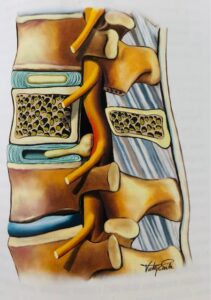I was first introduced to resistance training in the weights room at the age of 15 when I was in high school. Our Physical Education teacher (Mr Carter you will never be forgotten) use to take our group to the National Sports Center of Wales (where all the Welsh athletes were made) where we could do any sports related activity we wanted. Some of the boys/girls in the group liked to play football, squash, badminton, table tennis, basketball, netball or lift some iron in the gym. Me, as much as I loved football, cricket and some of the other sports, I loved to push and pull things and challenge my strength, it has always been in my genes.
My father (holla at your boy!) who is 72 years old (I think) was an athlete himself. Growing up in a village in Pakistan well it was India then but soon became Pakistan and India. My father was into power lifting, he had great natural strength, 6ft 2 inches in height, lifting approximately 100-120 kg stones off the floor and throwing it over his head in one motion. He and a few others in the village were known as the ‘strong men’. There was a tradition back then that when a man was marrying a girl from another village, the men from that village (the girl’s father or uncle) would make someone from my father’s village lift a heavy stone so they could take the girl back and if not then she stays (LOL!). I am not sure how many times my father did this but he has mentioned it to me that the elders from his village always called upon him to lift the stone. It was the village pride at stake and a statement to show people how strong the men are from his village and they did not want to look weak. My father arrived in the UK in the early 70’s and there was no tradition of lifting heavy stones here in Wales but there was heavy lifting for him to do on the production lines in the factories (10-12 hour shifts) in pursuit of earning some money to build himself and the family a better future here and in Pakistan. He would go on long walks and run for miles on his day off from work and do some body weight exercises at home, this was his regular routine. He found these exercises to be very helpful and fundamental to help him manage his diabetes.
Moving on from our history, I came across a blog on the British Journal of Sports Medicine (BJSM) about the benefits of resistance training. I wouldn’t say I was shocked but I was amazed at the statistics mentioned in the blog article especially in the older population. There are so many benefits to carrying out progressive resistance training. Reducing the risk of dementia, needing care, and mortality are enough reasons to take the exercise pill. This is done by lifting weights, or pushing against resistance.
A recent study from the UK showed adults who carried out strength training 2 days a week had a 20% reduction in mortality from any cause, and 43% reduction in cancer mortality. These are significant percentages and hard to ignore.
There is a direct relationship between muscle mass and strength and memory and cognition. Lifting weights or pushing against resistance will stimulate muscle growth which will reverse or slow down the decline in muscle mass and strength and improve someone who has poor memory and cognition. I have always from my own experiences found that when I am training regularly and consistently, my mind stays sharp and better able to manage my day to day activities.
Information which is consistently found from the studies mentioned in the blog article is that resistance training is to be performed at least 2 days per week, fully supervised, used machines/and or free weights and done at high intensity (80% of maximum strength). The American College of Sports Medicine (ACSM) guidelines are a good place to start from. They advise that everyone, including older adults to carry out progressive resistance training 2 days a week at a moderate (5-6) to high (7-8) intensity on a scale of 0 to 10., hitting the major muscle groups of the body. So when you see us physiotherapists in hospitals or private settings always banging on about exercises then I hope you know why. Keep moving, keep loading, and keep getting strong.
You can read the full blog article about resistance training with the references on this web address:







